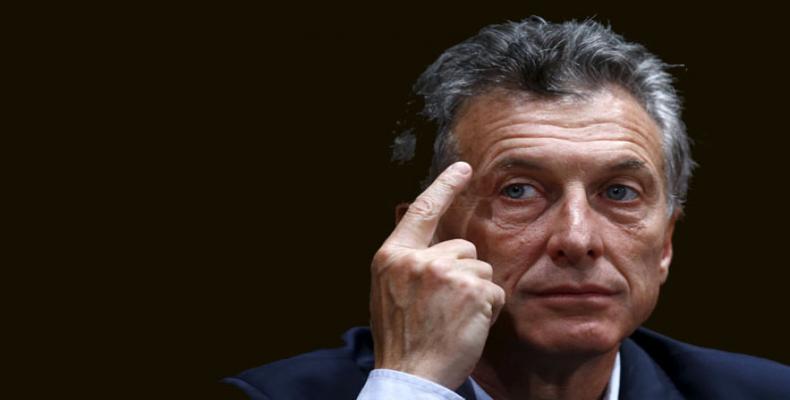Buenos Aires, January 7 (teleSUR-RHC)-- Argentina’s new government will reportedly undermine the National Archive of Memory, where important information on human rights violations is stored.
The archive's president, Horacio Pietragalla, whose parents disappeared during the last civilian-military dictatorship from 1976 to 1983, announced that the administration of President Mauricio Macri plans to close the institution where many relatives of victims left their private documents in order to build a national project.
In order to demand extraordinary legislative sessions take place to debate Macri’s various emergency decrees, including the one about the National Archive of Memory, Facebook group “Resistiendo con aguante,” or Resistance with Strength, is calling on its 54,000 members to take to the streets under the slogan: “Extraordinary Session Now!”
This is the latest protest against the series of executive decrees implemented in less than a month by the new conservative administration, in order to reintroduce a neo-liberal model in Argentina after 12 years of progressive administrations under Presidents Nestor Kirchner and Cristina Fernandez.
Pietragalla argues that the decrees Macri issued days after taking power constitute a power abuse, “ignoring the people and humiliating constitutional rights.” The move would coincide with the opening-up of an investigation by a legislative commission over the responsibility of business sectors in state terror.
Hector Timerman, the former foreign minister under the last government, expressed his solidarity with Pietragalla and his team, saying the institution was world famous for its commitment to memory and that countries had consulted him when he was minister for advice on setting up similar projects.
The Macri government has already fired state officials in various institutions -- firing over 2,000 people in the Senate, dismissing more than 85 percent of the workers at the Kirchner Cultural Center Kirchner, and the contracts of 2,500 municipal workers in the town of La Plata were not renewed on December 31st.
In addition, Macri controversially reformed via emergency decree the Media Law implemented in 2009 that sought to break up monopolies within the communications sector. The decree also planned the merging of two media regulatory bodies into one, run by a Macri ally, in an attempt to drive out officials appointed by former President Fernandez.
In the first week of taking office, Macri devalued the currency and announced plans to roll out changes to export and import rules to open up the South American country to foreign companies.
Macri’s opponents say his proposals will turn the country back to 1990s neo-liberalism, rolling back the social welfare programs implemented during the Kirchnerist administrations, which have benefited poor and working class Argentineans.


